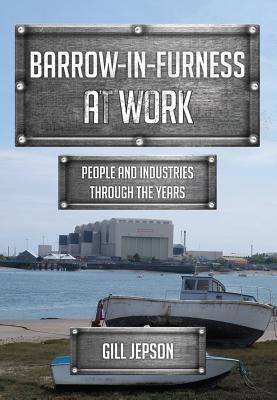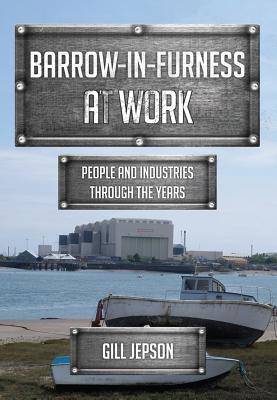
- Afhalen na 1 uur in een winkel met voorraad
- Gratis thuislevering in België vanaf € 30
- Ruim aanbod met 7 miljoen producten
- Afhalen na 1 uur in een winkel met voorraad
- Gratis thuislevering in België vanaf € 30
- Ruim aanbod met 7 miljoen producten
Zoeken
Omschrijving
In the early nineteenth century Barrow-in-Furness was a small village of 200 people, but within forty years its population had risen to almost 50,000. It became a hive of Victorian enterprise and industry and gained an almost frontier reputation, coining the nickname 'the Chicago of the North'. The discovery of iron ore and subsequent opening of the Furness Railway led to the development and growth of shipbuilding for which Barrow is famous. This growth accelerated until the First World War, but the iron and steel industry had started to flag after the Second World War, leaving the Vickers shipyard as the town's main employer, though the end of the Cold War would in turn lead to defence spending cuts and job losses, the shipyard later rallying with Trident. Barrow as a post-industrial town has had to show innovation and the will to adapt and change. Barrow-in-Furness at Work explores the life of this Cumbrian town and its people, from pre-industrial beginnings through to the present day. In a fascinating series of contemporary photographs and illustrations, it looks at the impact that the Industrial Revolution had on the population and the consequences of rapid urbanisation, the changes in the industrial landscape during the Victorian era, the devastating impact of war, the postwar decline of its traditional industries and the town's twenty-first-century reinvention as a hub of sustainable energy generation.
Specificaties
Betrokkenen
- Auteur(s):
- Uitgeverij:
Inhoud
- Aantal bladzijden:
- 96
- Taal:
- Engels
- Reeks:
Eigenschappen
- Productcode (EAN):
- 9781445670034
- Verschijningsdatum:
- 15/11/2017
- Uitvoering:
- Paperback
- Formaat:
- Trade paperback (VS)
- Afmetingen:
- 165 mm x 231 mm
- Gewicht:
- 272 g

Alleen bij Standaard Boekhandel
+ 44 punten op je klantenkaart van Standaard Boekhandel
Beoordelingen
We publiceren alleen reviews die voldoen aan de voorwaarden voor reviews. Bekijk onze voorwaarden voor reviews.








